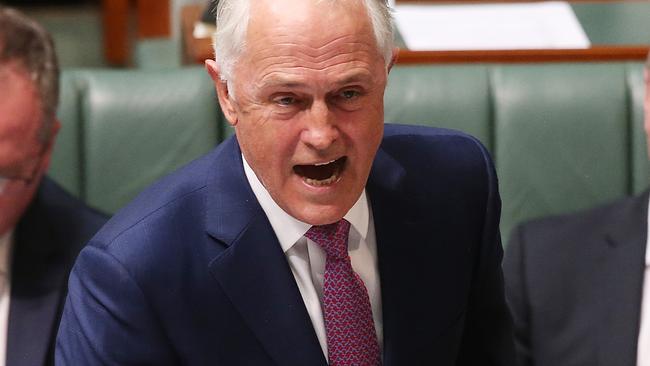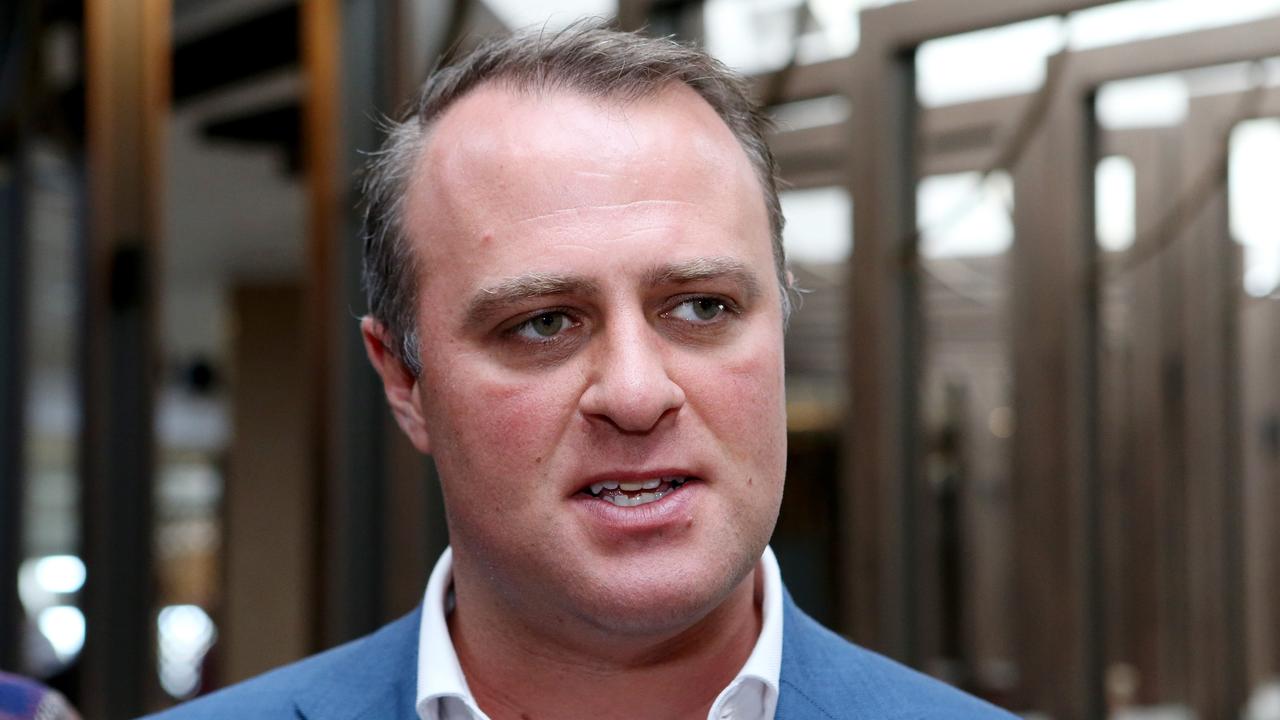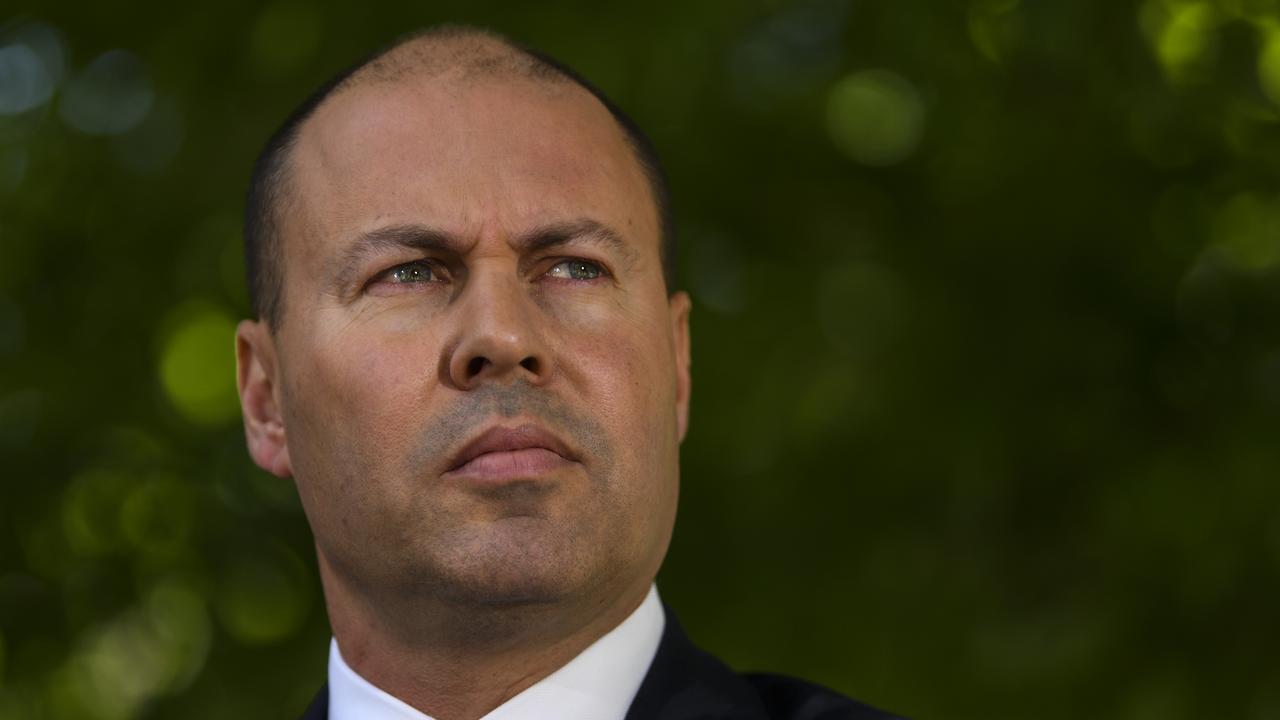Turnbull switches to plan B on tax reform
Malcolm Turnbull’s sweeping corporate tax cuts are heading for defeat in the Senate, opening the door for income tax cuts.

Malcolm Turnbull’s sweeping corporate tax cuts are heading for defeat in the Senate, opening the door for the government to prioritise personal income tax cuts as a major selling point in the May budget.
While Scott Morrison vowed last night the government would continue to fight for the company tax cuts, One Nation and the Nick Xenophon Team are lining up to oppose the package, estimated to cost $35.6 billion over the decade.
They argue the reduction is unaffordable and are pushing for more immediate action to ease cost-of-living pressures for households.
NXT senator Stirling Griff, whose party controls three upper-house seats, said: “We will not support these proposed cuts and it was reaffirmed earlier this week at a party meeting.”
One Nation leader Pauline Hanson, who controls three Senate seats, rejected arguments the company tax cuts would drive up wages for workers and vowed to oppose the reforms.
The looming Senate impasse has triggered fresh warnings from business leaders and economists that parliament risks leaving an economic dividend worth up to $20bn a year “lying in the gutter”.
AMP chief executive Craig Meller said yesterday the lower tax rate in America was encouraging more companies around the world to invest in the US.
“I speak to international companies regularly ... and they’re telling me it’s getting more and more attractive to invest in America than in high-tax countries elsewhere in the world,” he said.
Without a replacement in the upper house for former senator Jacqui Lambie, the government needs eight out of 10 crossbench votes to pass its legislative agenda when Labor and the Greens unite to block its bills, but it can at present count on only three votes in support of the tax cuts.
In question time yesterday, the Prime Minister branded Bill Shorten a “job-destroying business-hating populist” for opposing the corporate tax cuts and likened him to British Labour leader Jeremy Corbyn.
“Lower business taxes help to grow wages,” Mr Turnbull said. “They have a real, direct impact on Australian families. The Labor Party knows this is right. This is what they said in the 2010 budget.”
Labor has signalled it could use the $35.6bn obtained from not proceeding with the second phase of the government’s corporate tax plan to help fund key promises it will take to the next election.
This would help Mr Shorten cover the cost of the extra $17bn he has promised in school spending, as well as his commitment to introduce a $1.6bn infrastructure fund for Western Australia.
The government is expected to announce a timetable for its foreshadowed personal income tax cuts in the May budget, after Mr Turnbull put them on the agenda late last year.
The government argues it is possible to deliver both the company tax cuts and personal income tax relief for middle-income earners, while maintaining the return to surplus timetable in 2020-21.
The Treasurer yesterday rejected Labor claims the government was prepared to drop the second tranche of its corporate tax cuts, saying the Coalition was “committed to our enterprise tax cut plan … The tax cuts were necessary at the last election and they will be even more so at the next election as the rest of the world continues to cut their taxes on business.”
The first phase of the government’s $65bn enterprise tax plan, passed last year, has phased in reductions in the corporate rate to 27.5 per cent for companies with a turnover of up to $50 million by July next year.
The second phase of the package could still be legislated by the Coalition if it wins the next election, with companies reporting a turnover of up to $100m not due to receive tax relief until 2019-20. By 2026-27, company tax would drop to 25 per cent for all businesses and companies.
Speaking at the Citi A50 Australian Economic Forum in Sydney today, Mr Morrison will argue the case for company tax cuts has been “boosted by (US) President (Donald) Trump’s extensive tax reform program”.
“As a government, you have got to be prepared to do the things that achieve the right economic outcomes, and not go to water the first time that someone makes a criticism of your policy,” Mr Morrison will say. “This government will not relent to that.”
Economist Chris Richardson said workers would be the main beneficiaries of the government’s corporate tax package, which yesterday passed the House of Representatives by 75 votes to 71. “The benefits to Australia would have been two out of every three dollars would have shown up in wage rises,” he said.
“There is an argument that the dividends would have been even bigger ... Over the long term, we have left $20bn a year of reform lying in the gutter.”
Senator Hanson said the argument reducing taxes to business would drive wage growth and jobs was “just wishful thinking; I, for one, don’t buy the claim”.
Senator Griff said: “In an environment where governments are awash with surplus funds and community needs are being well met, well, yeah sure. But we’re a long way from that ... We’d see cuts to core government services or less investment in areas that matter.”
Liberal Democratic senator David Leyonhjelm, who supports the corporate tax cuts, said: “The government has absolutely no chance of getting its company tax cuts through.”



